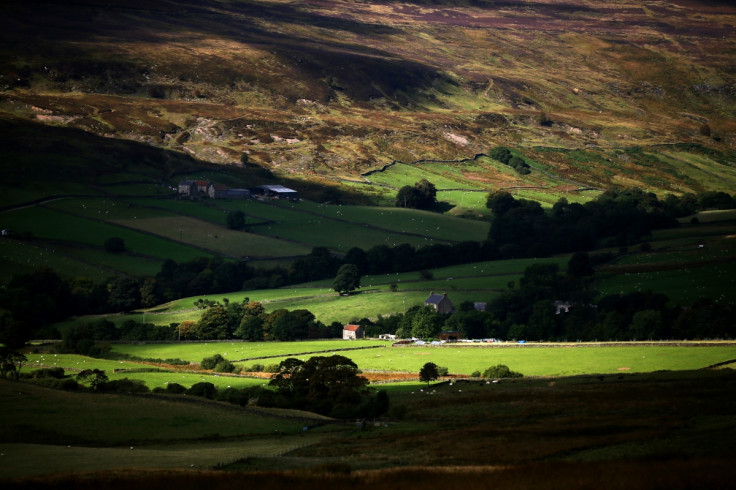Shale Gas: UK Government Facing Landowner Backlash Over Plans to Allow Fracking Without Permission

The government is facing a fierce battle with landowners over its intention to relax access rules so energy firms can begin fracking for shale gas under property without needing permission from whoever owns it.
The Queen confirmed in her annual speech at the state opening of parliament, laying out government business for the forthcoming year, that there will be legislation at the end of a consultation period on opening up access rights for energy companies.
Angry comments in response to the proposals were released by the Country Land and Business Association (CLA), which represents rural landowners in England, ahead of the Queen's speech.
"The oil and gas industries have used the existing system for years with little problem. The shale gas industry is yet to prove why it can't do the same, and has only provided hypothetical scenarios so far," said Henry Robinson, chairman of the CLA.
"Extensive fracking is new to the UK and carries an element of risk as with any oil or gas extraction. The impact over a long period of time is unknown.
"Landowners must not be held liable for something that was not of their doing if there are problems decades down the line. It is appalling the consultation does not address these fundamental issues."
Access system
Under the current system, landowners have the power to refuse access to geothermal energy firms who want to conduct work beneath their property at the surface. Oil and gas companies can challenge a refusal in the court where a judge can over-rule the landowner.
What is fracking?
Fracking is short for hydraulic fracturing. It is a process that involves drilling wells into shale rock, blasting a chemical fluid down to crack it, and tapping off the released gas as it rises to the surface. The process can cause minor tremors and environmental campaigners say there is a risk of contamination to the water supply. But the industry and government say a tight regulatory regime will prevent any such disaster.
The government wants to allow automatic free access to all energy firms below a depth of 300 metres from the surface to help spur on the shale gas industry and remove any obstacles to its growth.
Companies would have to notify the landowner and local community of any horizontal drilling to take place beneath the surface and pay them £20,000 per well. The government would make the changes under its Infrastructure Bill.
Ministers are keen to unlock the potential of the shale gas industry in the UK after vast reserves of the unconventional energy resource were discovered beneath parts of the north and south of England by British Geological Survey studies.
If realised, a shale gas boom would generate significant tax revenues for the Treasury, create thousands of jobs and make the UK's energy supply more secure. The access rights consultation ends in August.
'No noticeable effect'
The industry tried to play down concerns over the access rules shake-up.
"The proposed legislation will bring the onshore oil and gas and geothermal industries into line with other activities, such as mining and utilities, and will have no noticeable effect on the lives of home and property owners," said Ken Cronin, chief executive of the UK Onshore Operators Group (UKOOG).
"The onshore oil and gas industry is committed to working with local communities and operates within a regulatory system considered one of the best in the world. We have also brought forward proposals to share the benefits of shale gas exploration with local communities.
"It serves no one if an anomaly in the legal system allows the few to block access to much needed natural resources that lie deep below the surface of the UK and can benefit the whole of the country."
Planning
In order to win over local communities and planning authorities, the government has already unveiled a support package that will see some revenues from shale gas production in their areas flowing directly to them.
And a number of tax incentives have been offered to firms that conduct exploratory work.
"It is up to individual communities to decide whether fracking is right for them and local communities should decide, through their democratically-elected councils and the planning system, whether or not to host fracking operations in their areas," said Sir Merrick Cockell, chairman of the Local Government Association, which represents councils.
"Local attitudes to fracking should not be overridden by national policy. Ensuring communities feel safe is key and so any company which applies to frack must assure residents, via their council, that issues such as seismic activity and water pollution can and will be adequately addressed before planning permission is considered.
"Communities should not be short-changed by fracking and any financial benefits schemes set up for areas which accept plans should mitigate the adverse impacts of development and deliver significant benefit."
Cockell said the current proposals of 1% of production revenue going back into local communities is "not enough".
© Copyright IBTimes 2025. All rights reserved.






















